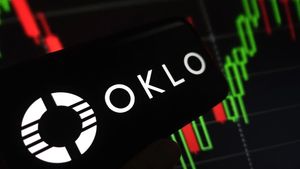
Every investor today seems to be after the technology sector’s hype, particularly in stocks, centered around the advancement and adoption of artificial intelligence in the global economy. While these stocks have dominated the momentum arena lately, there are other companies worthy of investor attention, filled with catalysts and tailwinds that could bring potentially market-beating returns.
Among these is SoFi Technologies Inc. (NASDAQ: SOFI) stock, which investors may shy away from considering it has underperformed the broader S&P 500 index by nearly 50% in the past 12 months. However, that is all in the rear-view mirror, and that can’t be monetized. What investors can focus on today to monetize the future view is the shifting winds in the real estate sector.
Given that SoFi is highly dependent on both the consumer discretionary cycle and the real estate cycle, a quick mention of how these two are doing—and might do in the future—is called for. But before investors jump into the weeds of the economy, here’s what Wall Street is thinking about SoFi stock today and how those views may be justified.
Analysts Go Bullish on SoFi Stock: Key Factors Driving Their Optimism
While investors should take Wall Street views with a grain of salt, they are still a worthy factor to consider when crossing out the checklist for a potential investment. Analysts at Deutsche Bank slapped a price target of $11 a share for SoFi stock, daring it to rally by 57.8% from where it trades today.
While the stock is now trading at only 60% of its 52-week high, which may have been enough to scare analysts away, the tailwinds in this stock were enough to keep others bullish on the company's future prospects. These views have translated into a projection for up to 200% earnings per share (EPS) growth for the next 12 months.
But these weren't the only ones on Wall Street who decided to express their bullish views on SoFi stock. The Vanguard Group (SoFi's largest shareholder) saw it fit to boost its position by an additional 1.7%, bringing the asset manager's net investment up to $604.6 million.
One last vote of confidence for investors to consider may be in the company's insider buying activity. Anthony Noto, SoFi's CEO, bought up to 30,715 shares as of June 2024 for a net transaction of nearly $200 million. Now, his average buy price was reported at $6.48 a share, so investors can get into the stock within 10% of where the CEO thought it to be a good buy.
Key Tailwinds Driving SoFi Stock's Future Growth Potential
Enough of Wall Street; it is time for investors to dig into the tailwinds behind SoFi stock, which justify this 200% EPS growth forecast and the buying from the company’s CEO himself.
Starting with the housing market, investors can see how the Vanguard Real Estate ETF (NYSEARCA: VNQ) has underperformed the broader S&P 500 by more than 20% in the past year. To blame this lagger comes the falling U.S. building permits, which act as a proxy for sentiment and activity within housing.
Permits are down by 7% on the year and roughly 3.5% on the month. Property markets are potentially in bearish territory, as judged by the lackluster performance of the real estate ETF. However, mortgage stocks are showing a changing trend.
PennyMac Financial Services Inc. (NYSE: PFSI) stock has nearly matched the S&P 500 over the year, with a 25.5% performance. It’s uncommon, but today’s market is creating a scenario under which mortgage stocks can rally and benefit much earlier than others in real estate.
Why? U.S. home listings have increased despite a lack of new residential construction and permits. When sold, all these listings will need to be converted into mortgages, and SoFi also comes into play.
While PennyMac is the traditional option, SoFi combines technology into the Financial Select Sector SPDR Fund (NYSEARCA: XLF), and its user growth verifies that trend.
According to the company’s first quarter 2024 earnings results, SoFi has grown its net member base to 8 million today, representing an annual jump of 44%. This increase in scale and reach allowed the company’s revenue base to reach $581 million, or a yearly growth of 26%.
These key performance indicators (KPIs) have also driven SoFi’s bottom line, bringing the company from a net loss of $34.4 million in 2023 to a net income of $88 million in 2024. Remember that this performance took place when the mortgage purchase index reached levels not seen since the 2008 financial crisis.
Now that the Federal Reserve (the Fed) is looking to cut interest rates this year, by September 2024, according to the CME’s FedWatch tool, investors have a more concrete timeline for expecting mortgage rates to also start coming down and potentially create new demand. This catalyst could surely boost SoFi’s earnings, as analysts now forecast.





